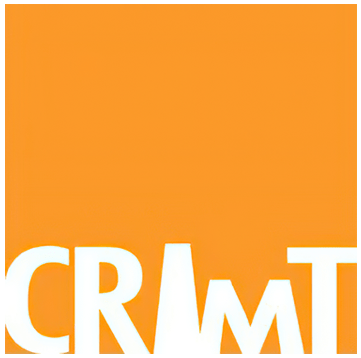The history of the Interuniversity Research Centre on Globalization and Work (CRIMT) comprises three main periods.
< 2002
During the 1990s, a dozen labour law and industrial relations specialists collaborated on various projects, several of which dealt with the evolution of labour regulation in the era of globalization. Whether about union renewal, the evolution of labour law, public policy and collective bargaining, new models of work organization, or human resource management, these collaborations stood out in many ways: they were interdisciplinary and multi-faculty; they mobilized diverse theoretical currents and traditions of empirical research; they brought together researchers from several universities in Quebec (Université de Laval, Université de Montréal and HEC Montréal, in particular); they were internationally oriented and included several collaborators from abroad. Many of the projects on which these collaborations were built landed support from Research Councils in both Quebec and Canada. Eventually, these efforts received initial structural funding in the early 2000s under the FCAR Fund’s Soutien aux équipes de recherche program.
A remarkable aspect of this history is that many of the researchers from this period are still active in the Centre. The launch – in 2021 – of the Jacques Bélanger and Pierre Verge fellowships made it possible to underline the pioneering work of these researchers who, unfortunately, left us prematurely.
2003 – 2016
CRIMT’s foundation as a research center responded to two impulses: first, the effort to imagine an interdisciplinary research program on the evolution of work in the era of globalization; second, this effort coincided with the launch, by Research Councils in both Quebec and Canada, of new funding initiatives aimed at supporting this type of project. Following demanding competitions, CRIMT obtains initial funding in 2003 as a start-up center under the Fonds de recherche du Québec – Société et culture’s Strategic Cluster program. At the same time, the team received initial funding under the Major Collaborative Research Initiatives (MCRI) program of the Social Sciences and Humanities Research Council of Canada (SSHRC). This marks the start of the second period.
By then, CRIMT had become a hub for interdisciplinary and interuniversity collaborations on work and employment in the era of globalization. The cluster then counted about thirty researchers in Quebec and approximately the same number outside the province. In addition, it sought to develop an open architecture that would allow – through the diversity of its scientific activities – to maintain collaborations beyond the boundaries of the cluster.
The Centre’s establishment was rapid and followed by a consolidation phase that lasted until the end of the 2000s, when it obtained a renewal of its funding until 2016 as a Strategic Cluster, this time as a continuing centre. Proof of the solid foundation it had created, the team received a second round of funding under the Social Sciences and Humanities Research Council of Canada‘s MCRI Program in 2008, renewing funding for its scientific program until 2016.
The Centre’s scientific and training activity were abundant during this period. CRIMT organizes dozens of scientific animation activities, including ten major international conferences, and long before video-sharing sites became popular, made available hundreds of hours of video capture useful for training and knowledge mobilization purposes. As well, its researchers have edited close to thirty special issues of scientific journals and published hundreds of scientific articles, which accelerated the transfer of project results and gave the project a very high profile. In addition, some thirty doctoral students and postdoctoral researchers trained at the Centre entered the academic career during the 2003-2016 interval, thus ensuring the renewal of a significant portion of the faculty in Quebec in labour law and industrial relations.
2017 >
The most recent period in the Centre’s history began in the spring of 2017 and continues to the present day. It has been a time of expansion, as well as of increased internationalization of its activities. With the renewal of its funding as a Strategic Cluster until 2024, CRIMT laid the groundwork for an ambitious project to establish an international research partnership dedicated to the study of institutional experimentation and its potential for better work. Funded under the Social Sciences and Humanities Research Council of Canada‘s Partnership Program in 2017, CRIMT joined forces with an international network of partner centres to better understand the conditions that underlie social innovation and are likely to produce better work, rather than worse. More than 180 researchers, including 52 in Quebec and 132 in Canada and a dozen other countries, are involved in this large-scale project.
The project places significant emphasis on the actors involved in social experimentation, whether at an organizational or institutional level, and the factors that empower them to shape its trajectory. By examining various instances of organizational or institutional experimentation and continuously re-evaluating them to enhance comprehension, the project aims to generate valuable research findings that shed light on the process of change and how actors, through innovative approaches, respond to the associated challenges.
This site provides an overview of the project, as well as of the scientific activities and publications resulting from it.


